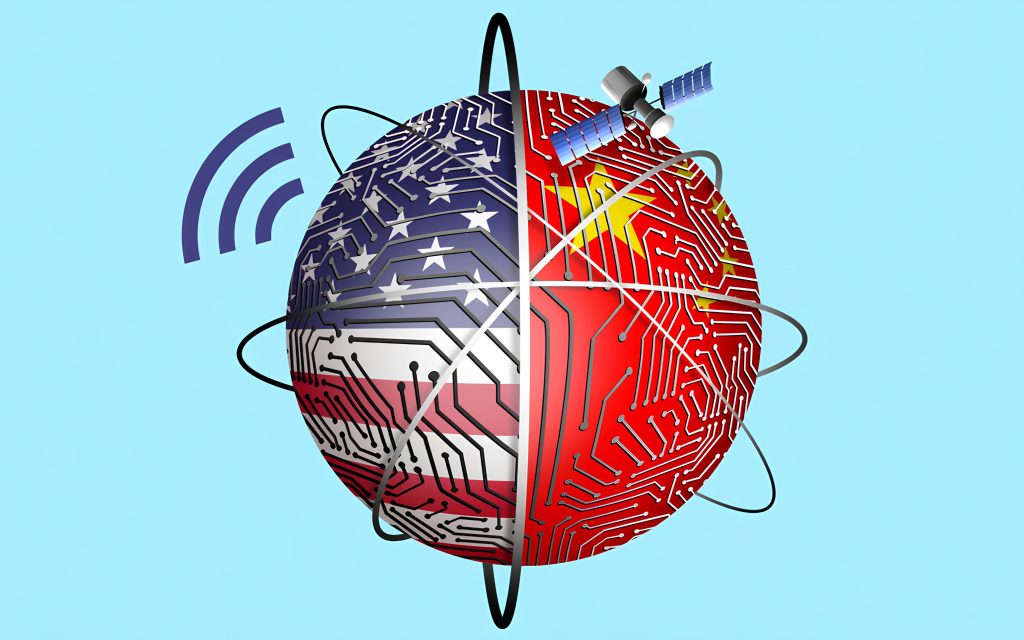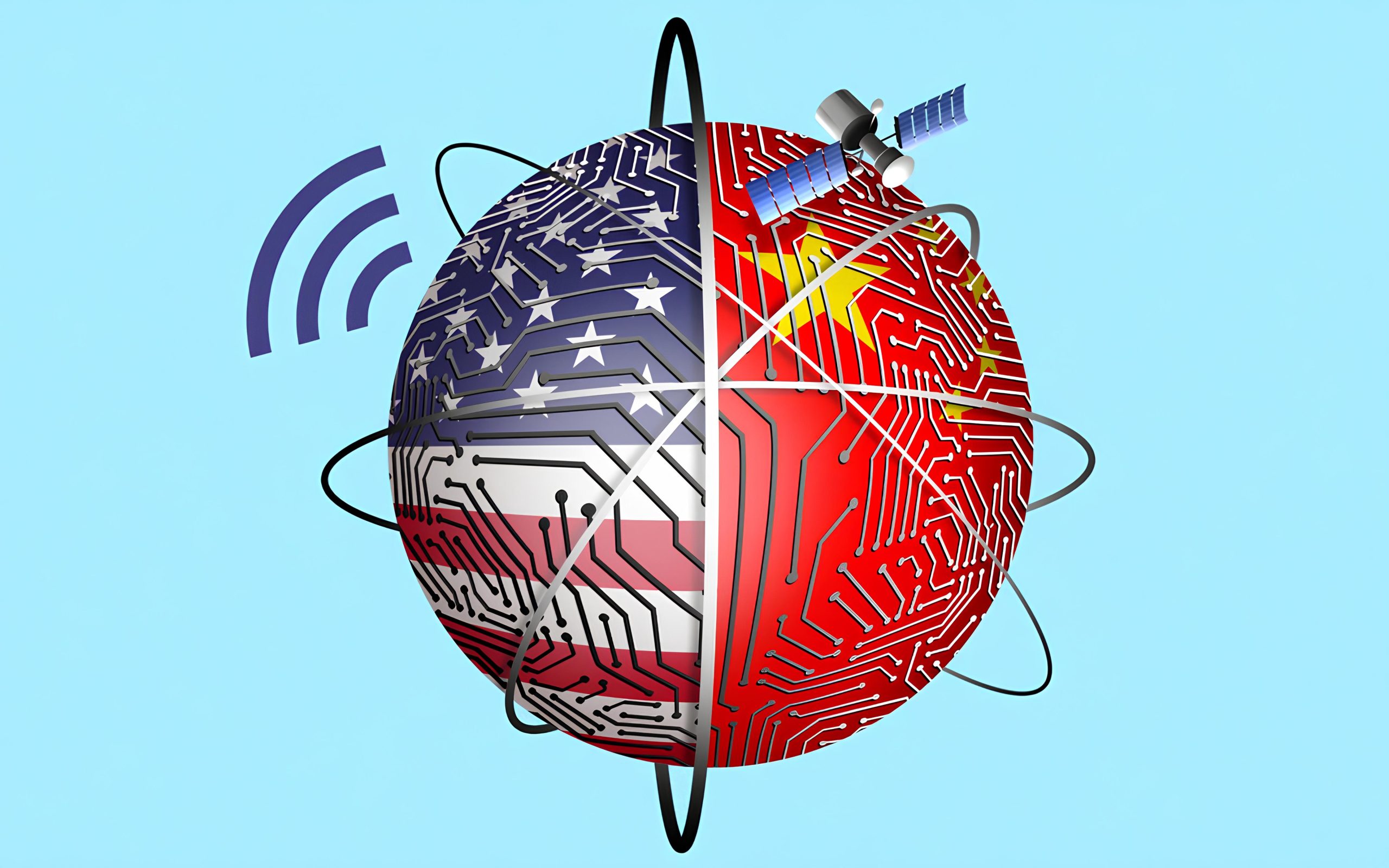








In addition to concerns about China’s surveillance activities through high-altitude balloons, Chinese telecommunications providers such as Huawei and ZTE raise national security concerns.


Welcome back to China Breif, where we take a look at the far-reaching impacts of global 5G competition on security, diplomatic relations and technological progress. In this competition, in the shadow of the troubled relations between China and the USA, a delicate balance is observed between the technological preferences of the countries and their national security concerns.
In early 2023, high-altitude balloons were observed flying over Canada, the United States, and Latin America, sparking curiosity and concern. The discovery of China’s ownership of the balloons raised suspicions that they were being utilized for espionage. This wariness towards China comes amid a broader unease regarding the country’s intentions, especially in relation to surveillance and technology. One prominent source of apprehension has been the high-tech component of the Belt and Road Initiative, which aims to expand the global reach of 5G technology. Several nations have conveyed reservations over the possibility of Chinese telecommunications vendors Huawei and ZTE surveilling on behalf of the Chinese government. As a result, countries face the challenge of balancing the advancement of their networks while ensuring national security.
Last June, Thierry Breton, a top official in the European Union, urged more member states to remove high-risk suppliers, such as Huawei and ZTE, from their 5G networks, which the companies objected to. The motivation for his insistence was security concerns. Portugal, one of the countries in the European Union that has banned Chinese 5G vendors, was hit with a lawsuit by Huawei this past summer for the ban. Portugal, however, is not the only nation to have been sued by Huawei. In 2019, the company filed a lawsuit against the United States because of the 2019 National Defense Authorization Act. This law prohibits government agencies from obtaining telecommunications equipment or services from certain Chinese companies, including Huawei.
The United States has vehemently highlighted the potential of Chinese companies using 5G infrastructure for espionage despite initially having a slow response. The nation began to address the matter after Australia raised the alert. In 2018, Australia blocked Huawei and ZTE from supplying equipment for its 5G network. That same year, the British government released a report stating it could provide only limited assurance that the United Kingdom had sufficiently reduced any risks to national security associated with Huawei’s involvement. Additionally, the government, via its National Cyber Security Centre, advised telecommunications companies against dealing with ZTE because of the possible risks to national security.
Although Australia, the United States, and a number of their allies have banned Huawei and ZTE sales, some countries are still engaging with these companies. Part of the allure is their comparatively lower prices. For developing countries, the more affordable pricing presents an opportunity to upgrade their networks at a fraction of the cost compared to alternative providers. The State Council of the People’s Republic of China has announced its commitment to promote digital connectivity, particularly in developing countries. The government has stated that this promotion is part of its broader objectives encompassing worldwide economic growth and international development.
Indonesia is one developing country that has opted to use Chinese technology despite harboring mistrust towards China. Nevertheless, the country has permitted Chinese tech companies to supply it with infrastructure and training. For Indonesians, while there are concerns about state security, the benefits outweigh immediate apprehensions about potential risks associated with foreign involvement. As a result, Chinese tech firms have found success. In Kenya, telecommunications company Safaricom has been expanding its 5G network. The mobile network operator, which is one of the most profitable in the East and Central African region, announced last March its plans to partner with Huawei to open three 5G experiential centers across Nairobi. For Indonesia, Kenya, and other developing countries, turning to Chinese vendors has provided a much-needed opportunity to accelerate connectivity at a lower price point, even amid concerns raised by an increasing number of developed nations about the possibility of surveillance by the Chinese government.
As the world becomes more interconnected, there are fears that nations or entities with ulterior motives could exploit the vulnerabilities within global networks. There are also fears that the ongoing rivalry between China and the United States could develop into a digital iron curtain, forcing countries to take sides. Tensions between the two powers have been escalating over Taiwan, the South China Sea, and various other issues. Just like nations were pressured into aligning themselves with either the Soviet Union or the United States during the Cold War, there will continue to be a similar push to choose between China and the United States.
The United States has been adamant in its accusations of China using Huawei and ZTE for surveillance. While there have been longstanding anxieties about Chinese technology, the worry has heightened as countries are selecting providers for their 5G networks. Moreover, accusations go both ways, as China has also accused the United States of espionage. In September, China’s Ministry of State Security reiterated allegations dating back to 2009, accusing the United States of breaching Huawei’s servers and stealing critical data. The United States was also accused by the Chinese government of a cybersecurity attack on a Wuhan facility that occurred last July.
Suspicions of other countries wanting to gain access to sensitive data are a natural phenomenon. With the rise of more advanced technologies, these suspicions will only grow. The rise of China is a subject of intense scrutiny by the United States and many of its allies. Accusations of espionage have become commonplace. Countries must remain vigilant in preventing unauthorized access to their sensitive data, although this is easier said than done as the methods for gaining access to this data have become more sophisticated. Furthermore, countries must navigate the pressure of being forced to take sides between China and the United States. With the global push to increase internet connectivity and a need for infrastructure, the mounting pressure to pick a side between the two great powers will only escalate.
Written By: GABRIEL RAMIREZ
Written By: DILARA SAHIN
Written By: DILRUBA YILMAZ
Written By: NILAY CELIK
Written By: ELDANIZ GUSSEINOV
Written By: JOSEF SCHOEFL
Written By: SELCAN BEDIRHANOGLU
Written By: FATIH CEYLAN
FA’s flagship evening newsletter guilding you through the most important world streis ofthe day. Delivered weekdays.
